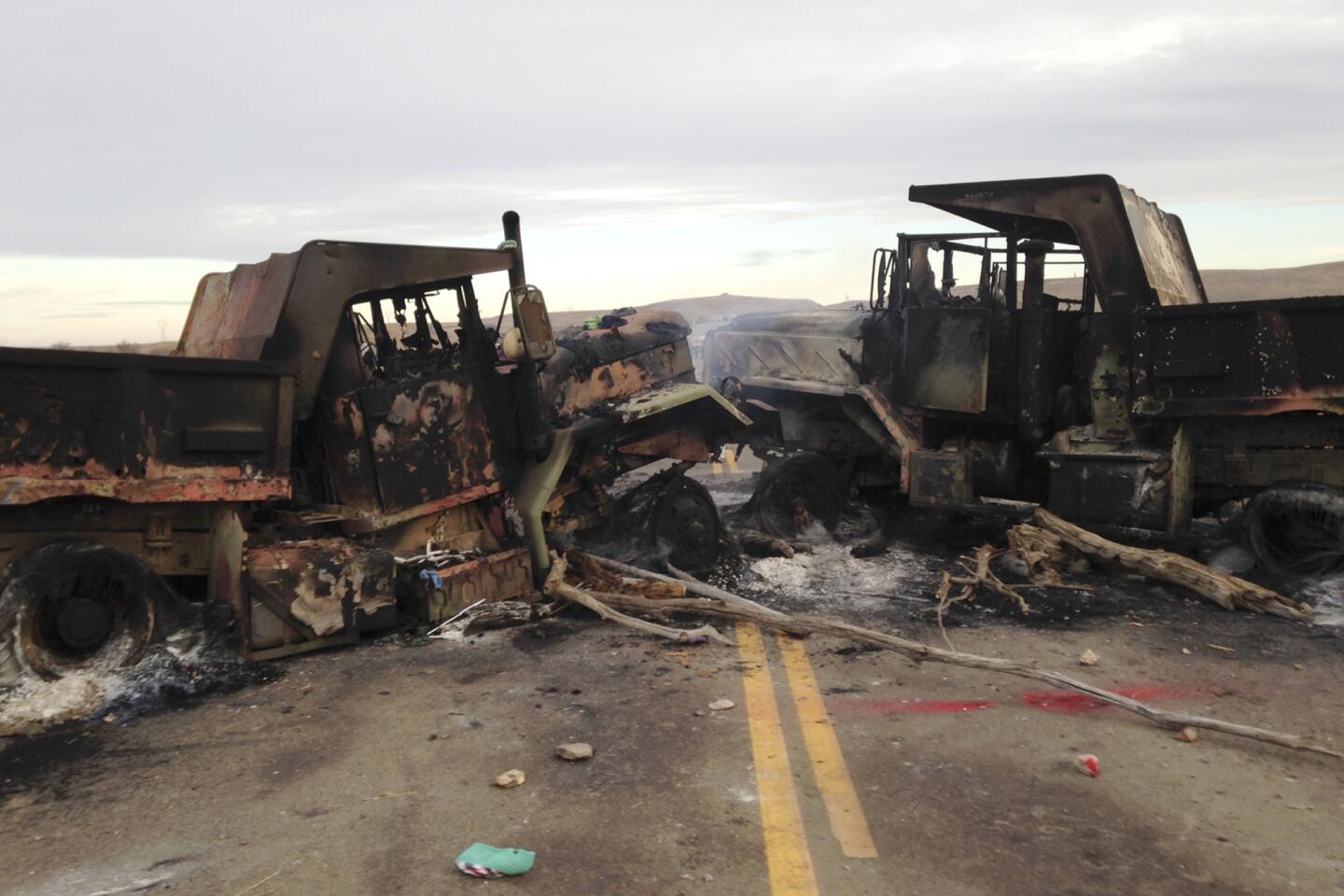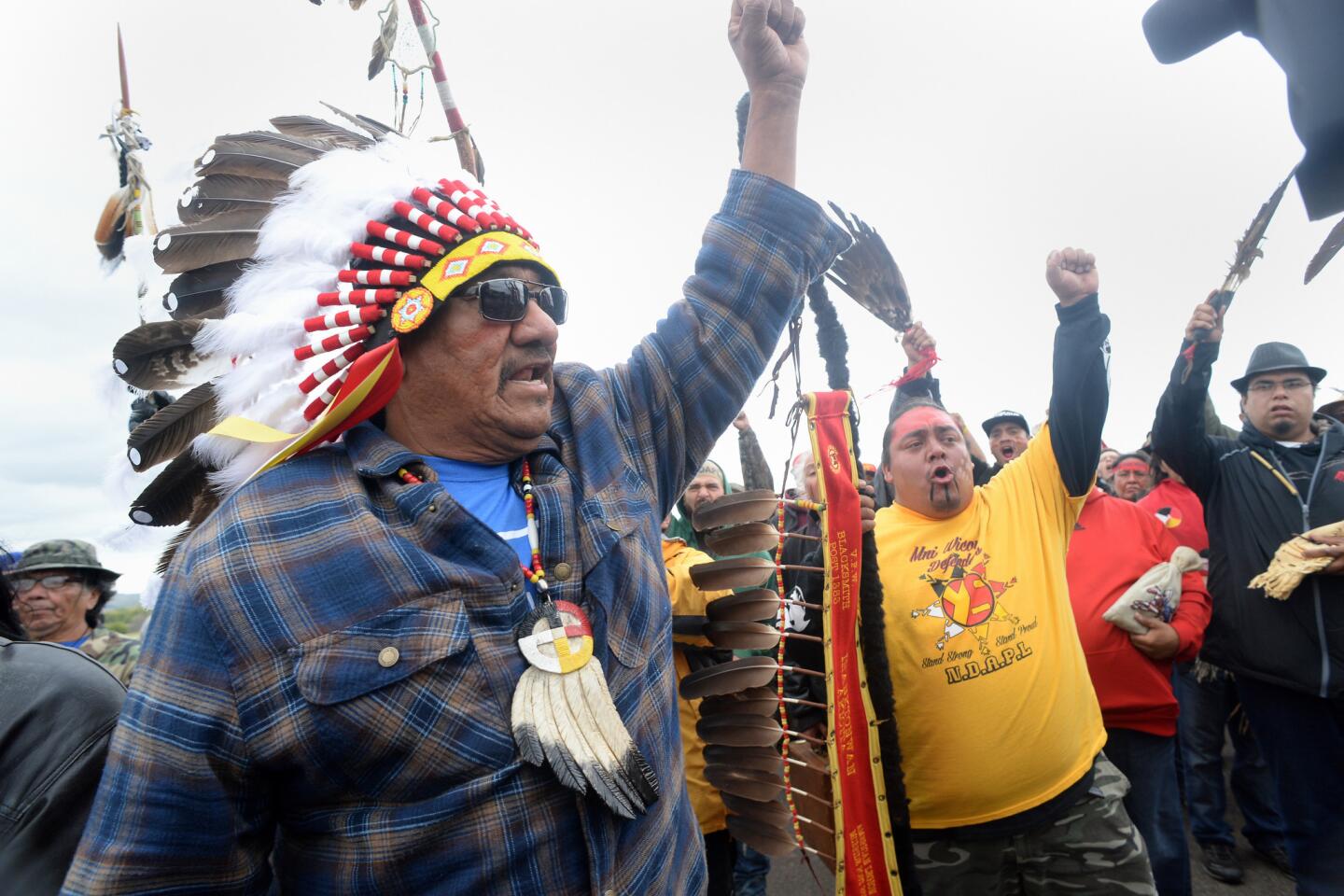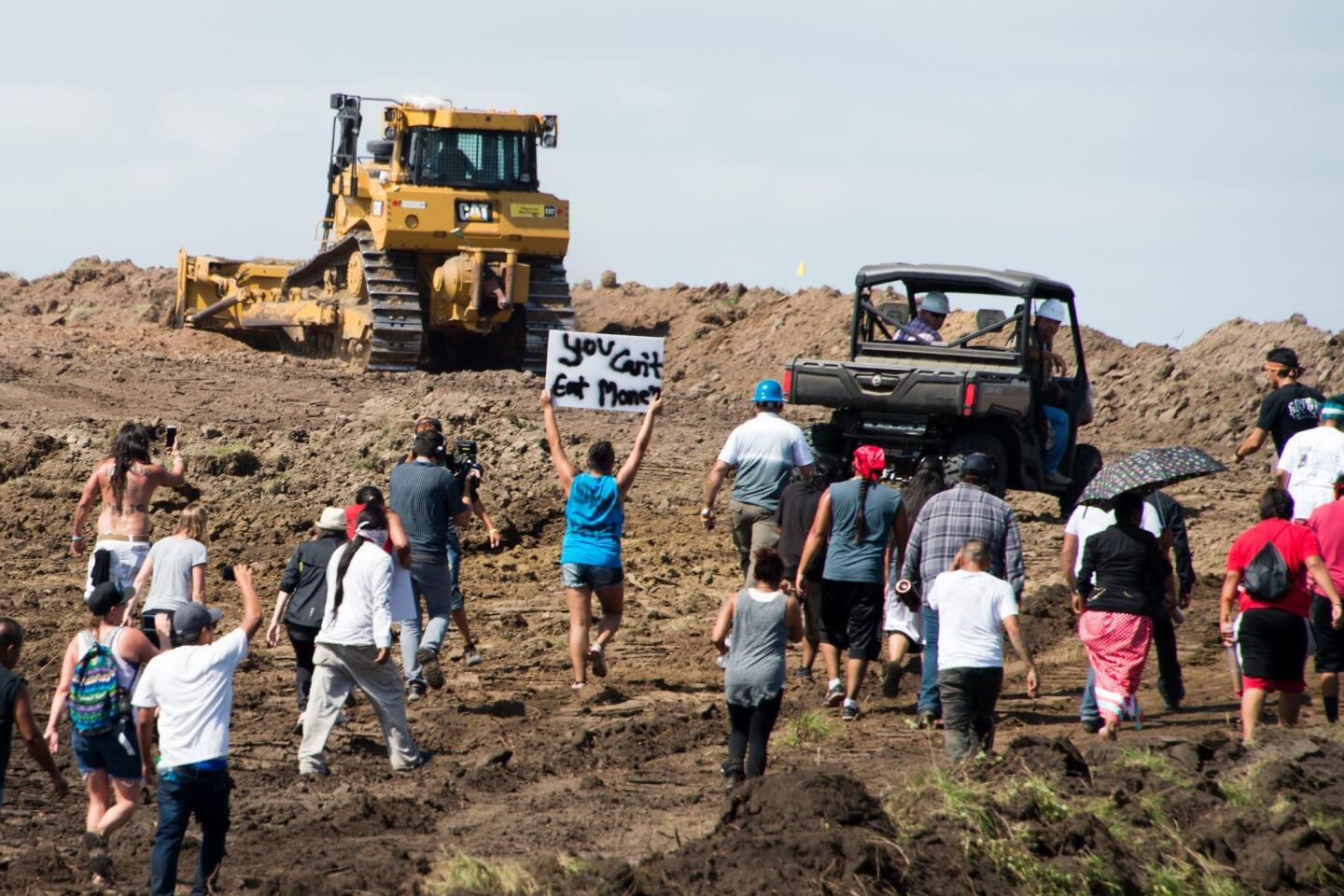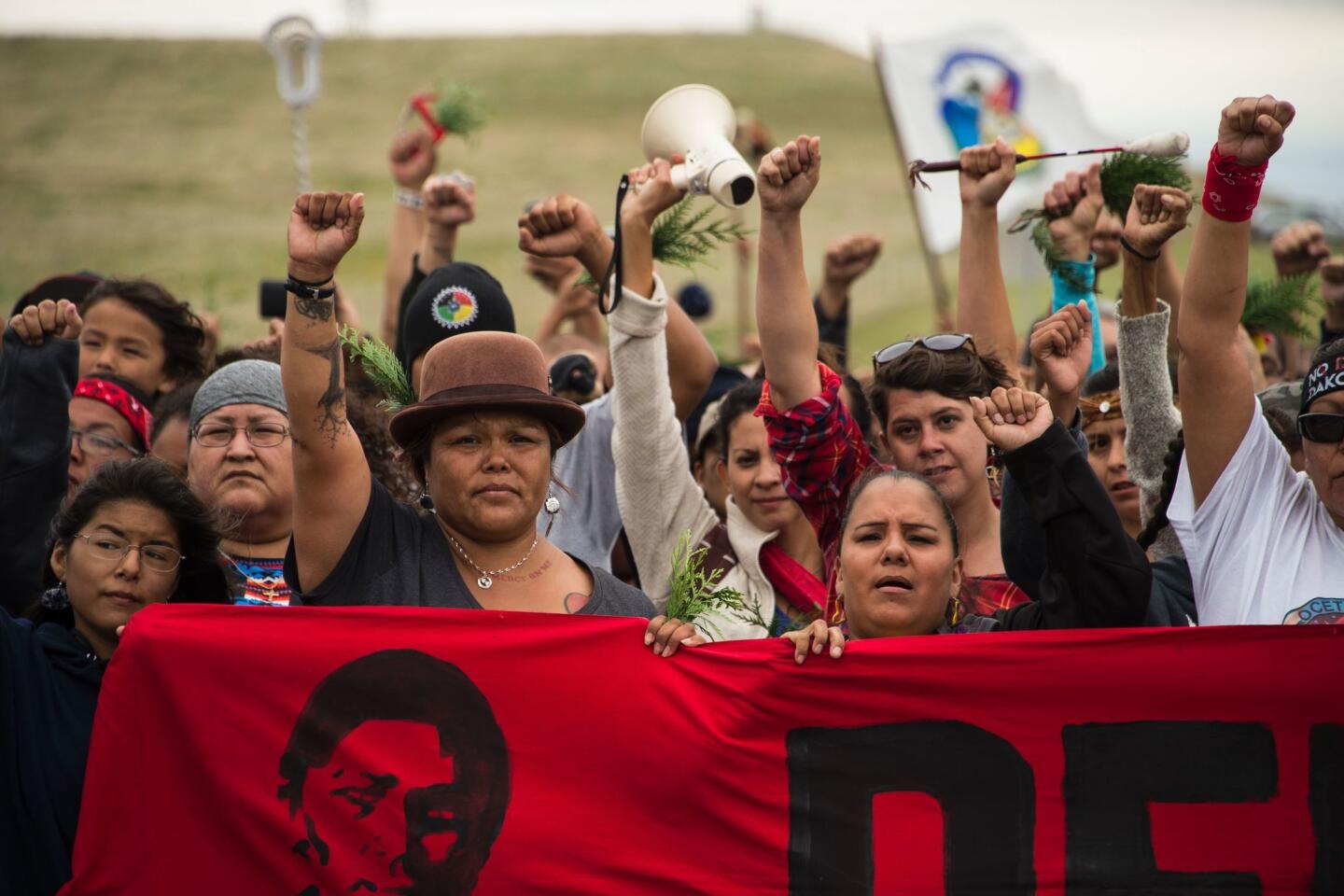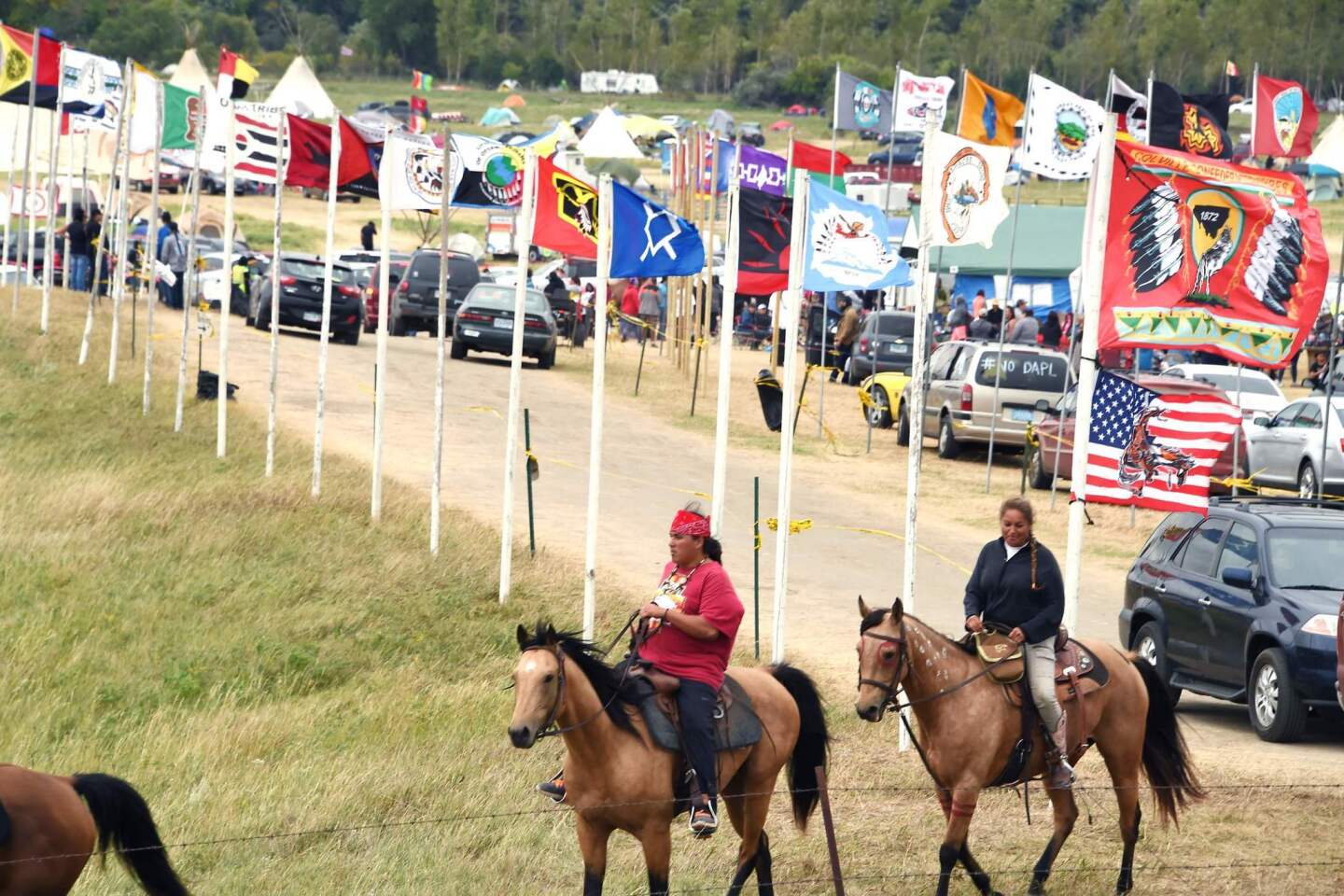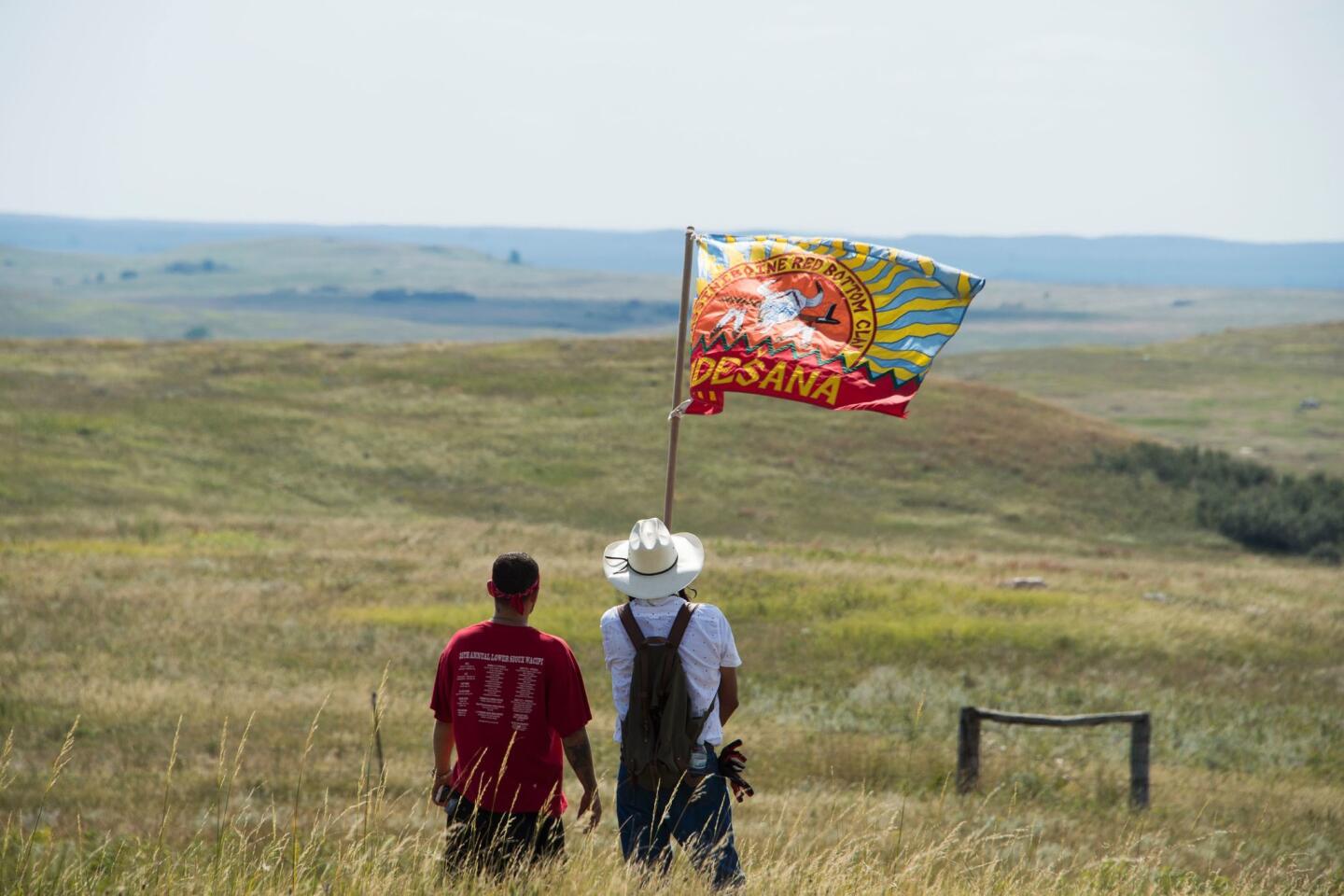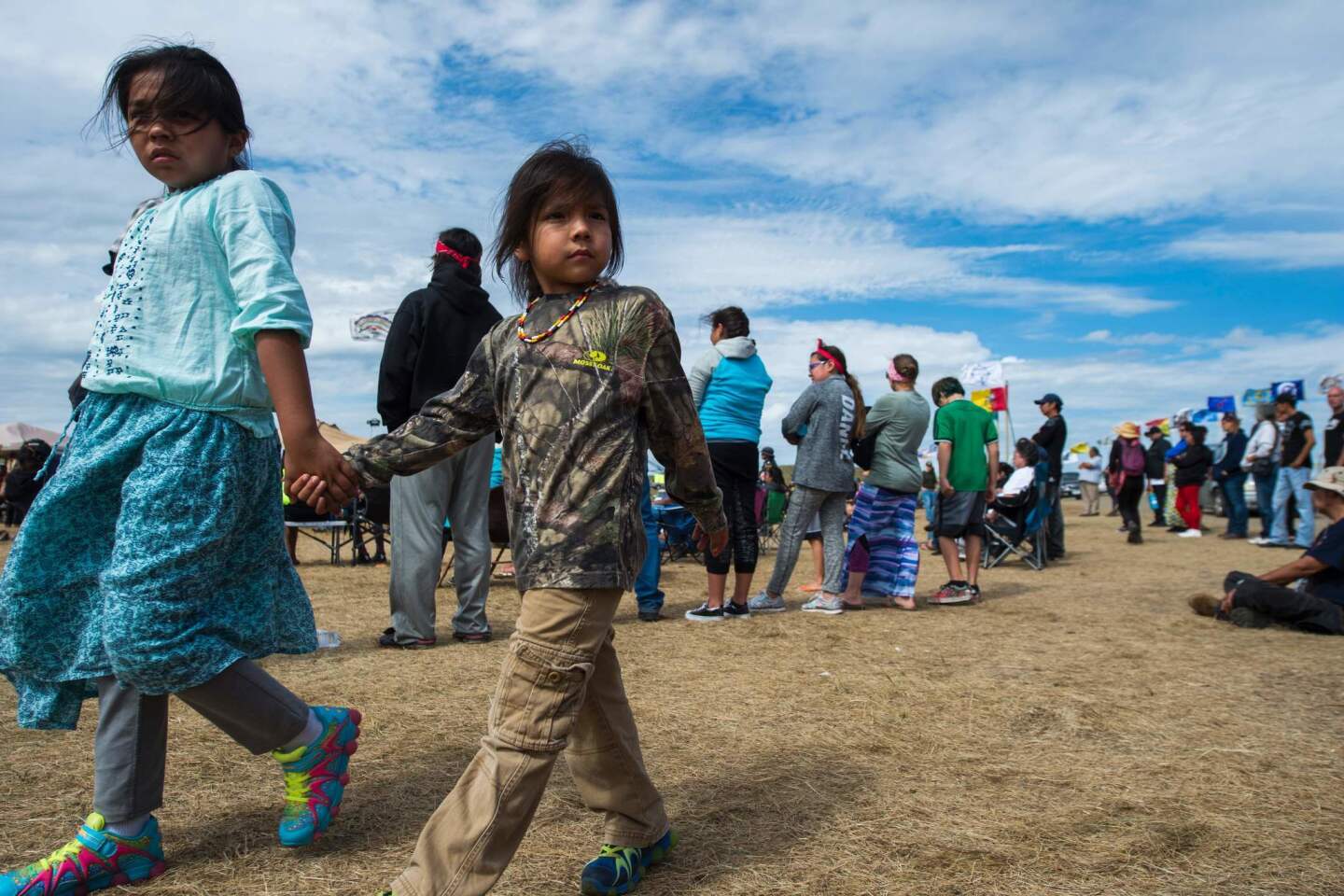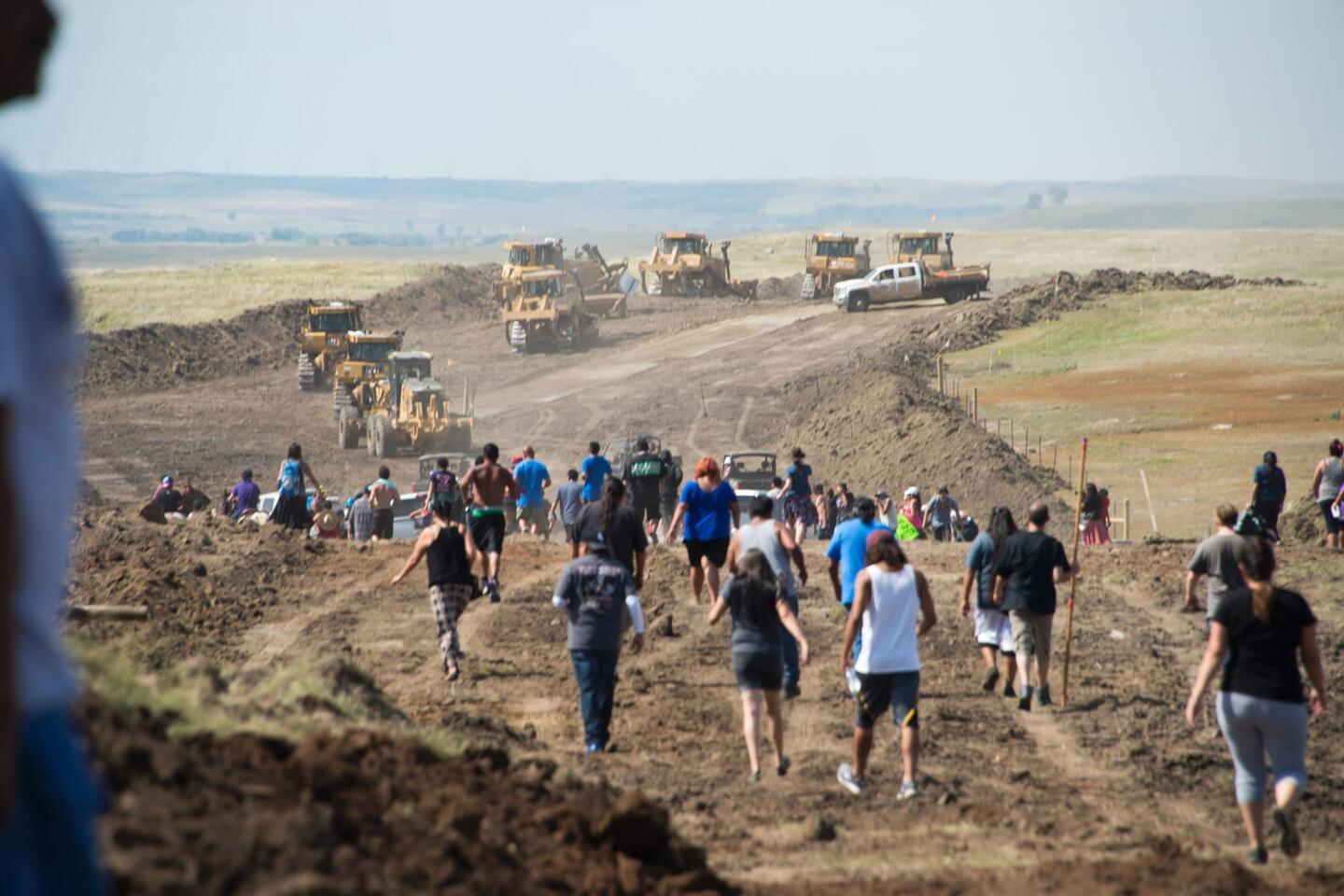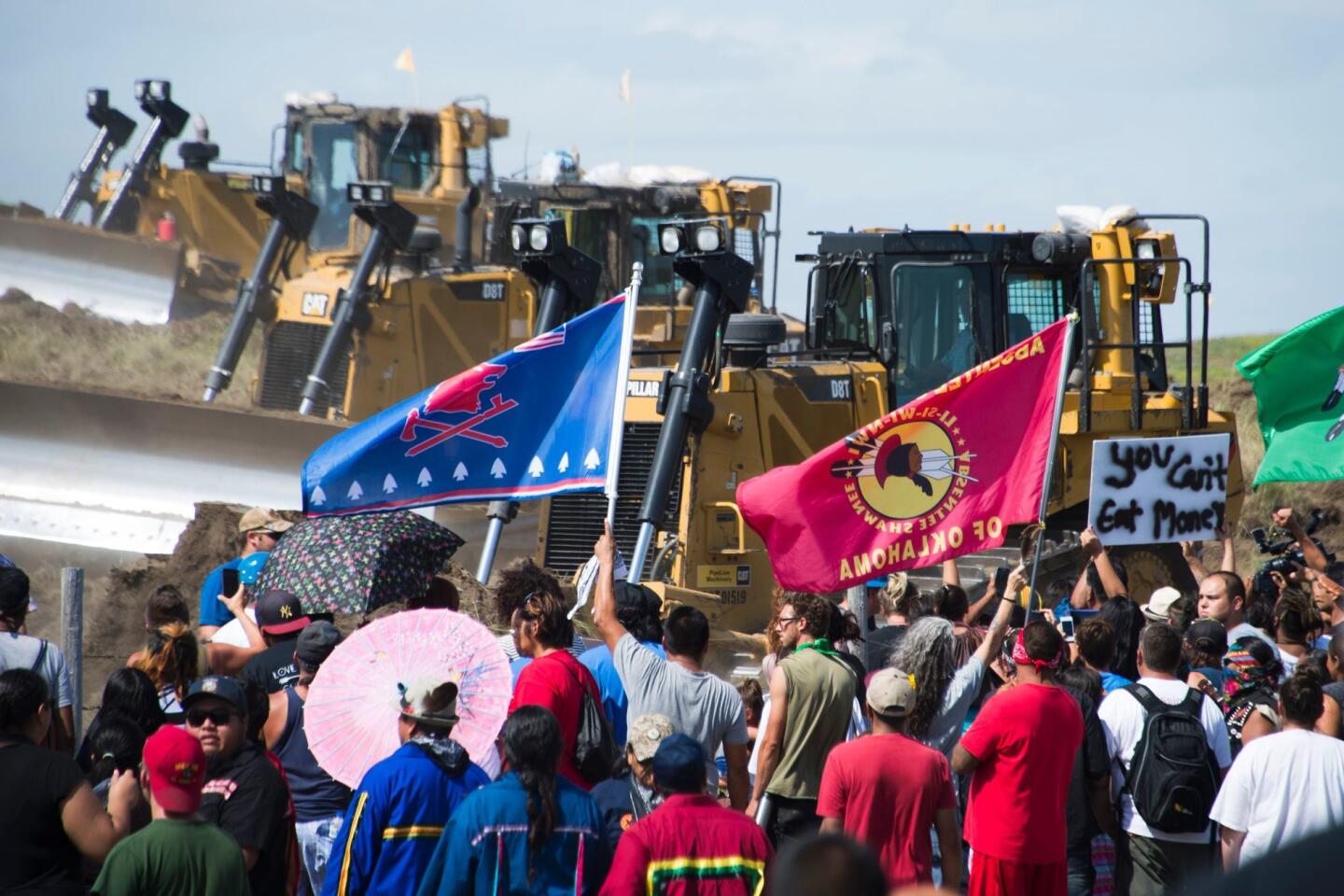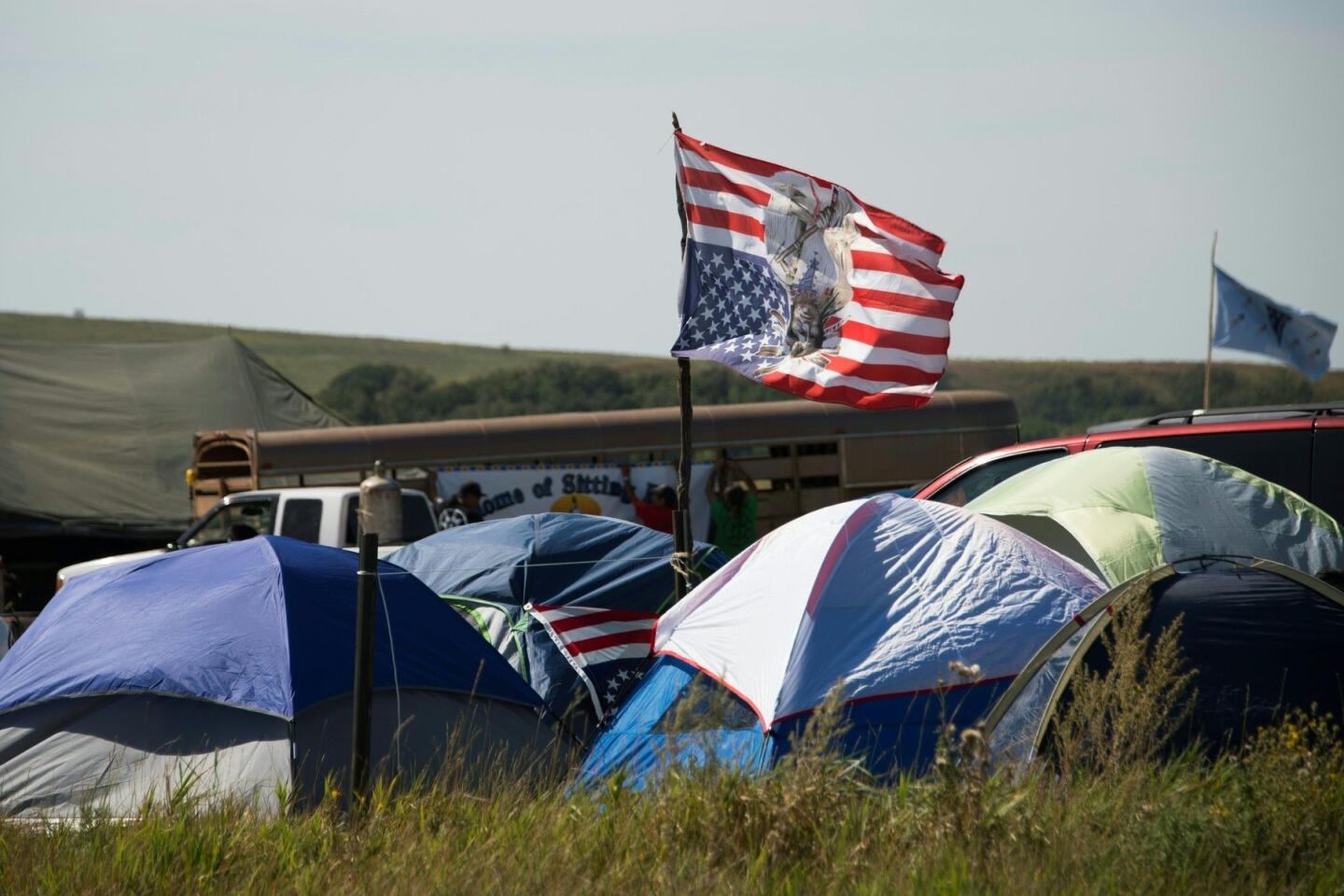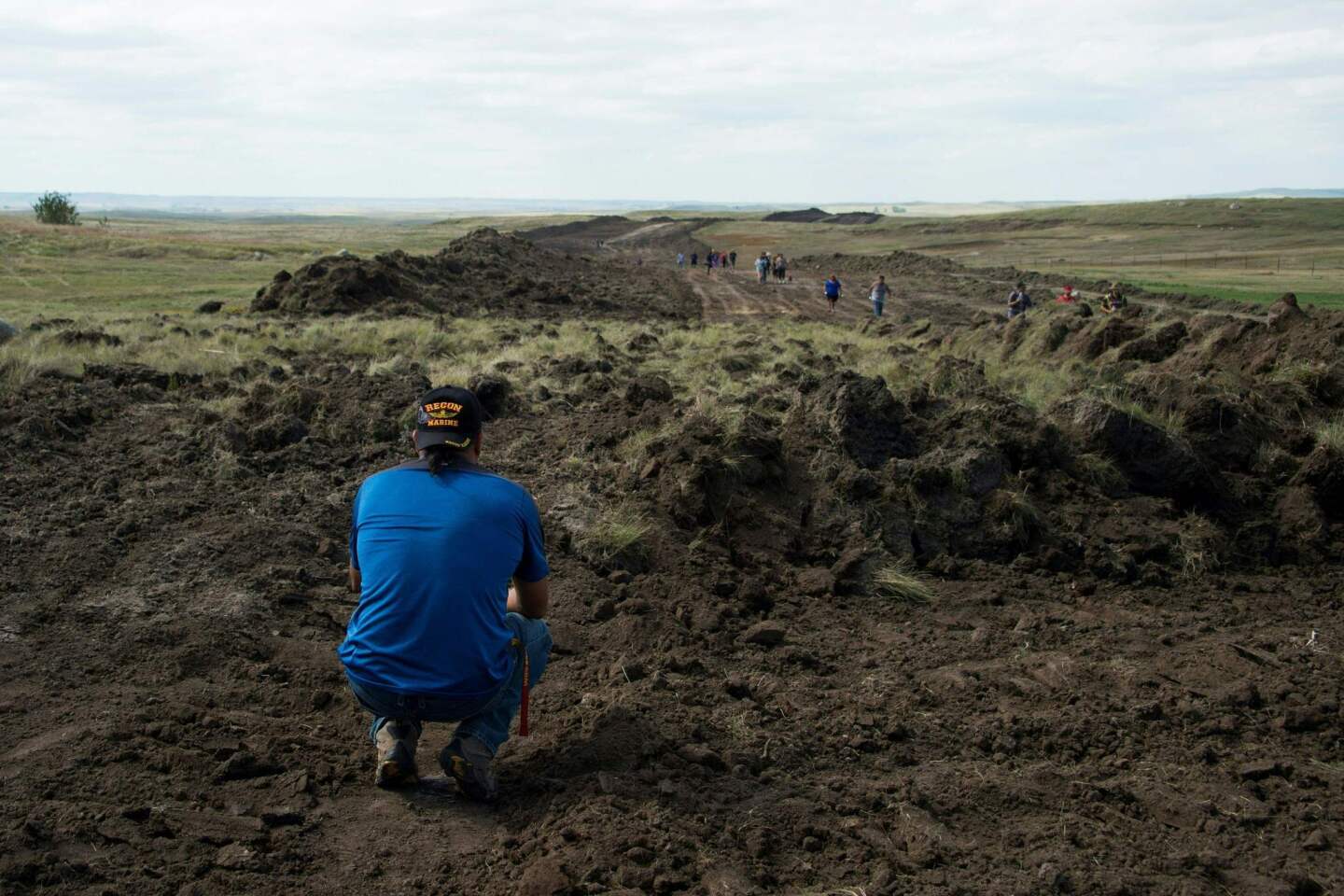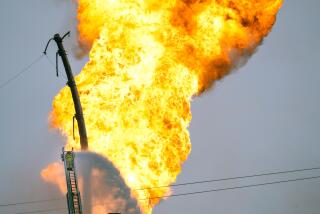U.S. authorities will temporarily halt construction of pipeline near lake sacred to Standing Rock Sioux
Reporting from Cannon Ball, N.D. — Federal authorities said Friday they will temporarily halt construction of a controversial oil pipeline near a lake regarded as sacred by the Standing Rock Sioux, heading off an immediate confrontation in a tense standoff in North Dakota that has drawn hundreds of tribes from across the country.
The U.S. Army Corps of Engineers moved to suspend further construction of the Dakota Access Pipeline near Lake Oahe along the Missouri River, even though a federal judge on Friday rebuffed the tribe’s request to order the halt.
“Construction of the pipeline on Army Corps land bordering or under Lake Oahe will not go forward at this time,” the U.S. Army Corps of Engineers and two other federal departments said in a statement shortly after U.S. District Judge James E. Boasberg’s ruling in Washington, D.C.
Federal officials said they also would be asking the company building the pipeline to voluntarily pause all construction within 20 miles of the lake pending a thorough review of the permits, which they pledged would be conducted “expeditiously.”
The Standing Rock Sioux tribe contends that the 1,172-mile pipeline, which would carry Bakken crude oil through South Dakota to refineries in Illinois, would damage or destroy cultural sites near its reservation that have been important to the tribe for generations.
Of particular significance is an area that once was the confluence of the Missouri and Cannonball rivers, a site the Sioux have long considered sacred — though the original location is now submerged behind a dam at Lake Oahe.
For months, hundreds of protesters — organizers say thousands have joined at one time or another — have gathered on the banks of the Cannonball River in a bid to halt further construction, and many vowed to stay despite the temporary construction halt.
“It’s a pause,” said Carol Craig, a camp organizer. “It’s not over. They won’t stop coming, not when there is money to be gotten. You better believe that.”
On Friday, the protest camp was full of the smell of cook fires, cigarettes and horses. Hundreds of tents filled the small valley, while members of the North Dakota National Guard, on call in case of conflict, were operating a checkpoint on the highway outside of Bismarck.
In every direction, bales of late-summer green hay dried into yellow straw along rich, hilly pastureland dotted by lakes and ponds.
Jeff Chavis, who has been at the protest camp for a month, said he was distraught that the judge did not support the tribes’ legal bid and compared it to allowing a member of his family to be harmed.
“If their mother were being raped in front of them, how would anybody feel about that?” Chavis said. “We’re not going to let this pipeline in. They’ve been told.”
Lynne Hunter, a schoolteacher from Winfield, Kansas, said she opposed the Keystone XL pipeline through her state and was proud of the Standing Rock tribe for working to prevent another pipeline.
“It is unbelievable what [the pipeline developer] is doing,” Hunter said. “I don’t even know anything about Indians, but it’s just wrong.”
From the beginning, tribe members said they were not adequately consulted when their artifacts and historical sites were put at risk.
But Boasberg in his ruling Friday concluded that the Corps of Engineers likely complied with the federal law governing protection of historical sites, and found that the tribe is not likely to suffer any irreparable injury by allowing permits to be issued while further reviews are undertaken.
“Lake Oahe is of undeniable importance to the tribe, and the general area is demonstrably home to important cultural resources,” the judge said in his opinion. But he said the tribe failed to show that work on the pipeline “is likely to cause damage.”
Most of the sites identified by the tribe are located “away” from the construction sites, the judge said.
Still, federal authorities on Friday afternoon signaled their intention to make sure the concerns of the tribe are heard.
“This case has highlighted the need for a serious discussion on whether there should be nationwide reform with respect to considering tribes’ views on these types of infrastructure projects,” said the statement from the Corps, issued jointly with the Justice and Interior departments.

Fears in the encampment had centered on potential violence after protesters on Sept. 3 clashed with members of a private security force working for the pipeline company, Dallas-based Dakota Access.
The North Dakota Private Investigation and Security Board told The Times on Friday it is launching an investigation into the personnel at the protest site to determine whether they were licensed to operate in North Dakota.
By late Friday afternoon, many at the camp remained suspicious of what federal regulators and the pipeline company might do next.
“We can’t say what they want to do,” said Steve Sitting Bear, speaking into a microphone to a circle of about 50 people, some of them in line for lunch at the camp’s kitchen. “We can’t trust the intentions. We need to hear it for ourselves.”
ALSO
With echoes of Wounded Knee, tribes mount prairie occupation to block pipeline
National Guard put on alert as protesters await decision on North Dakota pipeline
‘I’m just lost.’ Voters find it hard to commit to Clinton or Trump
UPDATES:
1:25 p.m.: The article was updated with details of the court’s opinion and initial reaction.
12:15 p.m.: This article was updated with the judge’s ruling.
This article was originally posted at 11 a.m.
More to Read
Sign up for Essential California
The most important California stories and recommendations in your inbox every morning.
You may occasionally receive promotional content from the Los Angeles Times.
